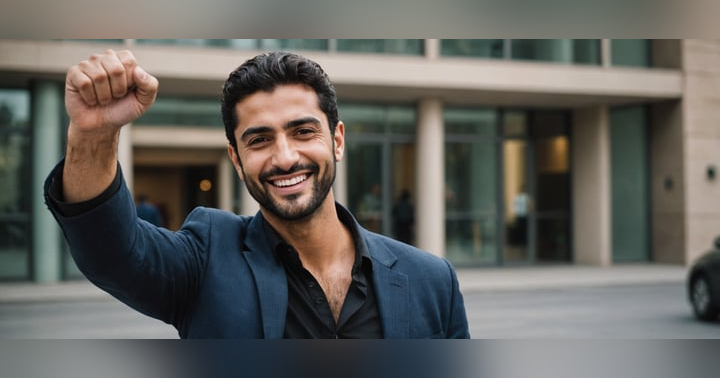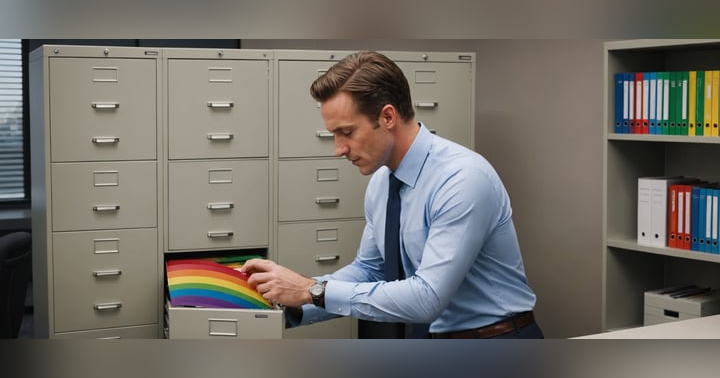Growing Up LGBTQ+ in a Heteronormative Family: A Journey of Love, Acceptance, and Self-Discovery

”Mom is Gonna Be Upset That I Told This Story”
Growing up LGBTQ+ in a heteronormative family can be a journey filled with both self-discovery and challenges. Reflecting on my own experiences, I’ve often found myself comparing my path to that of my sister, Michelle. Our shared family upbringing was marked by love and support, yet our experiences with dating, relationships, and societal expectations were shaped by different realities—mine as a gay man and hers as a straight woman.
Shared Upbringing, Different Realities
Michelle and I grew up in the same family and neighborhood, experiencing much of the same childhood milestones. Yet our paths diverged when it came to dating and relationships. Michelle was openly “boy-crazy” from a young age, talking about her crushes openly from preschool onwards. By middle school, she had a boyfriend, and bringing him home felt like a natural part of growing up. Her relationships were embraced by our family without hesitation, and she never had to question whether they would be seen as anything other than innocent expressions of young love.
For me, dating was much more complicated since I didn’t come out until I was 21. When I finally began to explore romantic relationships, I was constantly anxious about how my family would perceive them. I worried that introducing a same-sex partner might make them fixate on the "gay" aspect—on the possibility of a sexual relationship—before seeing the person and connection I wanted to share with them. The thought of my family viewing a same-sex relationship as something “different” made me question whether my feelings and connections could ever be truly understood.
While Michelle’s relationships were supported openly, mine felt like a quiet struggle. She was free to explore love with little fear of judgment, while I wrestled with silence and self-doubt. The contrast between our experiences underscored not just how our parents approached our relationships, but also the broader societal dynamics that influence how LGBTQ+ individuals learn to navigate love and acceptance.
Growing Up with Different Understandings of Being “Gay”
Another area where our experiences differed was in how we understood what it meant to be “gay.” For Michelle, growing up in the same small town, LGBTQ+ people were becoming more visible. By seventh grade, she had classmates who were openly gay, and she accepted them without a second thought. To her, love and relationships, regardless of gender, were natural and worthy of celebration.
For me, the journey was far more complicated. I remember hearing the word “gay” thrown around in a negative context when I was in elementary school. It was often used as an insult, with no real understanding attached. The first time I saw something related to same-sex relationships on TV was a news story about civil unions. As two men walked out of a chapel together, my mom quickly turned off the TV. This unspoken action sent a subtle, yet powerful message that same-sex relationships were “different”—and not in a good way.
Meanwhile, by the time Michelle entered high school, the landscape had changed. She had classmates who were openly gay and well-respected, including the popular valedictorian who was friends with the basketball team. For Michelle, LGBTQ+ people were just another part of her world. She grew up in a time when acceptance could still thrive, even in a conservative small town. This shift was powerful, showing how even in communities that may not be widely accepting, change is possible.
The Rumor, the Reveal, and the Path to Understanding
Given our age difference, Michelle and I didn’t overlap much in school, but when I was in high school and she was in middle school, a rumor started to circulate about me. A classmate of Michelle’s mentioned that their older sister thought I was gay. Michelle wasn’t fazed by it, but when she brought it up to me, I was immediately upset. Being labeled as gay felt like a threat, like my truth was being exposed to the world before I was ready to accept it myself. I had spent years adjusting my behavior to avoid being “outed,” but the rumor made my worst fear feel real.
Eventually, I came out to my parents—through an email—which Michelle stumbled upon, and, instead of confronting me, casually said, “I kind of knew It felt like a moment of quiet understanding, and we just moved on with our sibling relationship. It was such a contrast to the years of turmoil I had internalized, and in that moment, I realized how much of my struggle had been tied to my own fear rather than any real external judgment.
For Michelle, looking back on that moment, she wished I could have come out sooner. She recognized that my struggle had been more about my own fear than any lack of acceptance from our family. Her experience of self-discovery was far different—one that didn’t carry the weight of secrecy or shame.
As Michelle entered college, she was exposed to an even broader spectrum of identity. Her college floor became a space of open-mindedness, where students could ask questions and learn from one another. This exposure allowed her to develop a deeper understanding of LGBTQ+ issues, which, in turn, expanded her view of the world. It also reinforced her commitment as a nurse to treat all people with respect, regardless of their identity or beliefs. To her, everyone is a human being deserving of respect, and this mindset expanded beyond her college years.
The Power of Self-Acceptance and Empathy
Michelle’s example of living openly and confidently serves as a powerful reminder that true fulfillment comes from embracing who we are, free from fear of judgment. For her, being true to oneself is the key to happiness.
However, this journey is not just about accepting our authentic selves; it’s also about embracing others. In a world often divided by differing beliefs and lifestyles, it’s essential to approach others with empathy and open-mindedness. As Michelle points out, those who struggle to accept others should reflect on their own insecurities, since it's easier to judge others than to confront our own shortcomings.
Admittedly though, the process of self-acceptance can be slow and complex, with moments of overwhelming uncertainty. But as I reflect on my own experience, I’ve come to understand that these moments of uncertainty are not something to rush through—they are part of the journey.
By trusting ourselves, being patient, and listening to our intuition, we can gain the confidence to live authentically. And when we do, it’s not just a personal victory; it becomes a shared one, built on empathy, openness, and the courage to be who we truly are.
And remember. Every day is all we have, so you've got to make your own happiness.
For more information on this topic, listen to Episode 39. We Are Family: Part 1 (with Michelle Loveless).
Tune into your favorite podcast player every Tuesday for new episodes of A Jaded Gay.


















